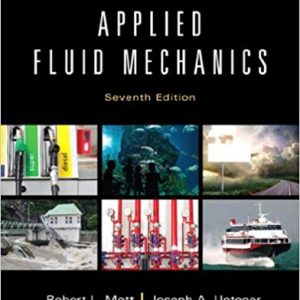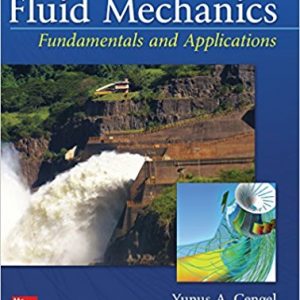The world around us is filled with fluids, including water, steam, air, and other synthetic and natural fluids that are vital in our daily lives. Fluid mechanics is concerned with how these fluids flow under applied stresses. This subject is central to the education of mechanical, chemical, aeronautical, aerospace, and civil engineering students. Introduction to Engineering Fluid Mechanics by Marcel Escudier is an etextbook in PDF format that provides numerous practical examples of theoretical concepts. Examples include determining the thrust of a jet engine, calculating shock and expansion-wave patterns for supersonic flow over a diamond-shaped aerofoil, calculating the power output of a gas turbine, and evaluating the forces created by liquid flow through a pipe bend or junction. The first 10 chapters are suitable for first-year undergraduates, while the latter half covers the material applicable to upper-level fluid mechanics courses. While calculus knowledge is essential, this book emphasizes the underlying physics. The significance of dimensions and dimensional analysis is highlighted, and the book covers more material on the flow of non-Newtonian liquids than in general books on fluid mechanics, reminding readers that the majority of synthetic liquids exhibit non-Newtonian behavior.
About the Author
Marcel Escudier is the Emeritus Harrison Professor of Mechanical Engineering at the University of Liverpool. He worked as Gruppenleiter fur Stromungsmechanik at the Brown, Boveri Research Center in Switzerland from 1974 to 1986 and then as Head of the Fluid Mechanics Department at Schlumberger Cambridge Research in the UK. He has authored around 60 research papers, discussing topics such as turbulent boundary layers, vortex breakdown, burning plumes, and the flow of non-Newtonian liquids. He was elected a Fellow of the Royal Academy of Engineering in 2000.









Reviews
There are no reviews yet.